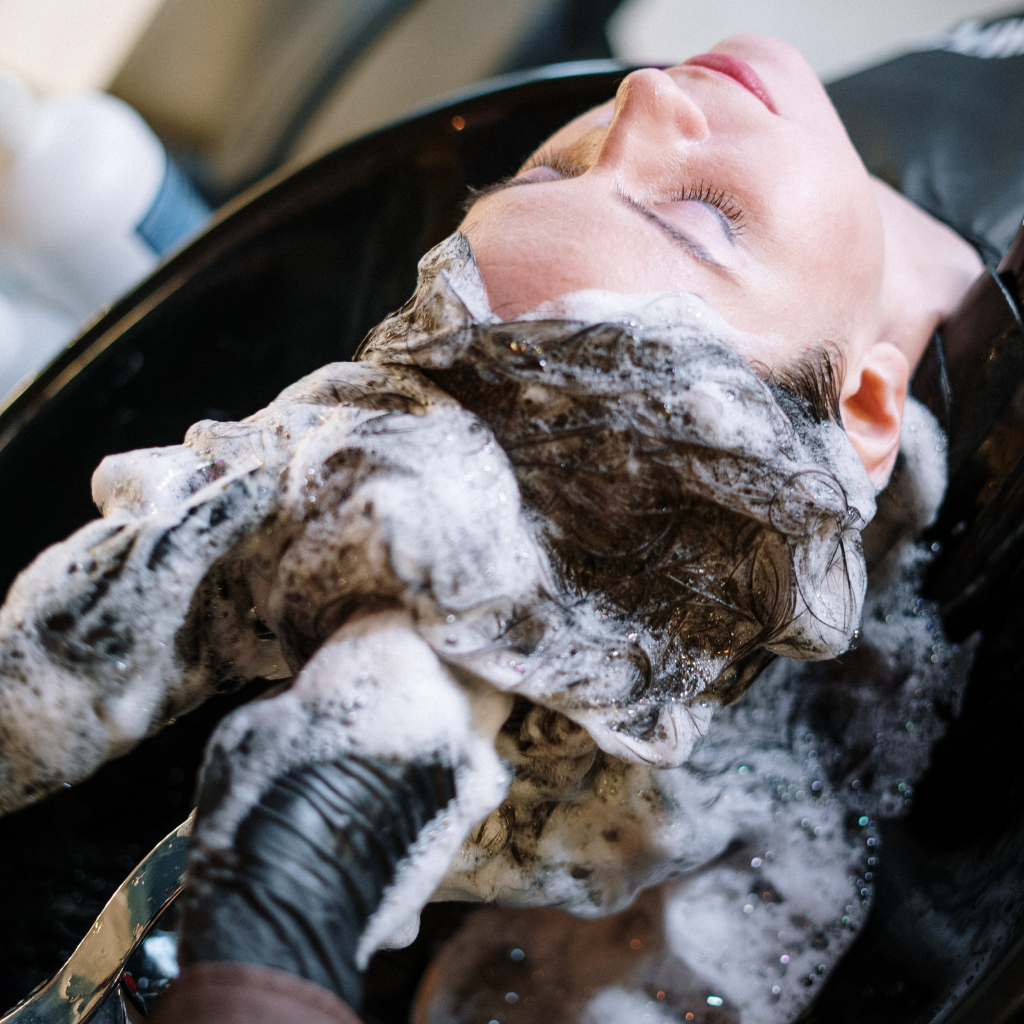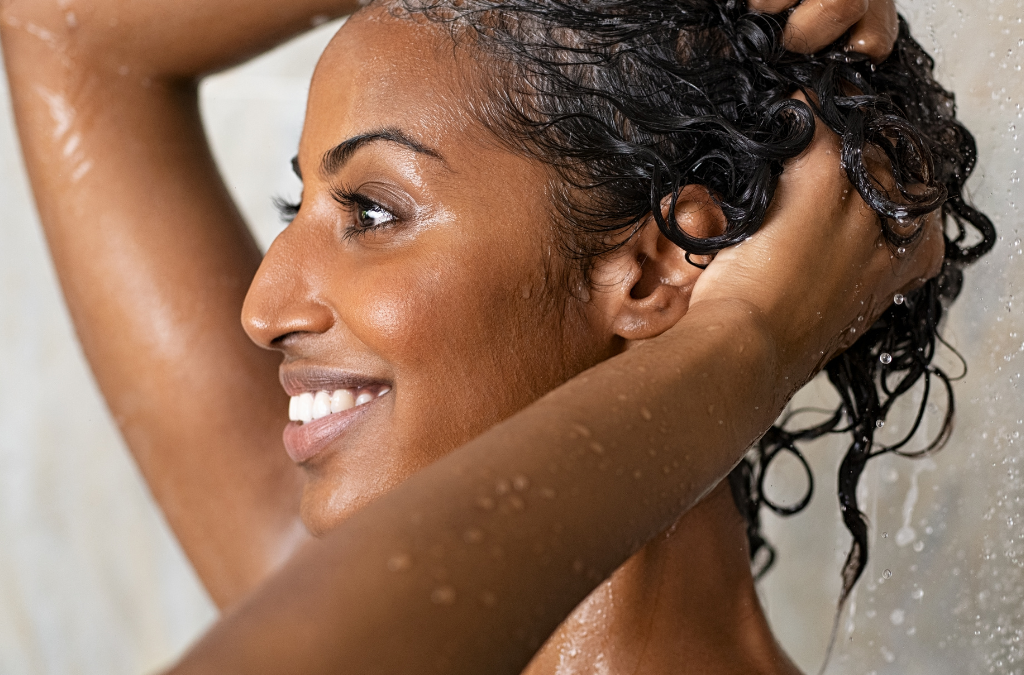We’ve been using shampoo all our life, we know it’s used to clean our hair, but do you know how? Do you know why we use a shampoo instead of say, soap? Let’s unpack it together.
Shampoo is the highest selling cosmetic around the world, beating toothpaste, I couldn’t believe that statistic when I read it. As the most used cosmetic in the world, it is widely available and sometimes at dirt cheap prices.
Cleaning my hair has been a pivotal part of my life since I can recall. As a child, my hair was washed and braided every Sunday, ready for the upcoming week. When I became an adult, that routine continued, except you’d find me in the hair salon every Saturday having my hair washed and styled, ready for the upcoming week.
I remember my hair was always shampooed twice, once to get the main dirt and oils out, then again to ensure any remnants were gone. When I was done, my hair felt clean and light; sometimes, too clean I think. Washing would be swiftly followed by a dollop of conditioner to replenish the oils washed away in the cleansing.
How Shampoo Works
Shampoos are generally made up of cleansing agents called surfactants. As you may already know, water and oils don’t mix, so water alone wouldn’t be able to wash it out of your hair. That’s where surfactants come in, they act as a mediator between the water and the oil/dirt buildup, making it easy for the oil and dirt to be washed away. When water is added to surfactants, a little worker bee called Micelles are formed, they work by surrounding the dirt and oil particles, making them easy to lift off the hair and scalp. When the shampoo is rinsed out, these micelles, loaded with dirt particles, attach themselves to the water and get washed away, leaving you with clean hair and scalp.
Why You Need To Wash Your Hair Regularly
Washing your hair is important, as important as cleansing your skin. The scalp is covered by hair, so won’t get dirty as easily as your hand would. However, the scalp produces oils to protect the hair from environmental elements as well as keeping the skin nourished. As you go about your day, you lose heat through your head, producing sweat. The oil, sweat, dust, hair products etc, accumulate over time and need to be washed away. If this collection of dirt and debris is left unwashed, it produces a funky odour, causes the hair to appear dull, and creates other issues such as itching and flaking.
As our Afro curly textures need more product to maintain moisture, it is recommended we wash our hair at least once per week, 10 days at the most.
Most products made for Afro hair textures, which help soften and make our curly hair more pliable, are laden with ingredients that don’t care much for our scalp, which is one reason washing them away is so important. Some of these products, when reapplied to the hair without washing, can cause buildup on the hair strands, which may lead to hardness, dryness, hair splitting and other forms of hair damage.
Why Your Hair Needs Shampoo
We spoke about product build up in the previous paragraph, product buildup can lead to hair damage. Using a detergent based shampoo helps the hair release the weight of the build up, allowing it to accept and process new moisture input.
There are a few alternatives to shampooing such as co-washing, no poo, clay wash and vinegar rinses. Apart from Clay washing, the other forms are not cleansing the hair, they are maintaining the moisture balance. These alternatives should be supplemented with regular clarifying shampoos, as they can also cause product build up.

Natural Shampoos
Shampoo of old was mainly based on one ingredient sodium lauryl sulphate. It’s cheap, cleans exceptionally well and foams like the Atlantic ocean on a cold morning. This cleaning action proves to be too much for the human scalp and skin. Studies have shown sulphates to be too harsh and can cause irritation or lead to skin issues from prolonged use. Following these studies, a lot of major cosmetics companies have moved away from this particular ingredient and have moved to more mild solutions.
In addition to this, there has been a huge move towards Shampoos made of ingredients from more natural sources. These ingredients have been found to be much milder, offering comparable cleansing action to sulphates but without the increased skin irritation. These milder surfactants can be expensive and offer low foam – see this post about low foaming natural surfactants and the myth about foam – two main reasons mainstream companies do not use them, as using them means increasing their prices or losing profit margins. We won’t get into that now. Here are some examples of the natural surfactants I’m referring to:
- Decyl Glucoside
- Caprylyl/Capryl Glucoside
- Sodium Cocoyl Apple Amino Acids
- Sodium Lauroyl Glutamate
- Yucca Schidigera Stem Extract
Shampoos made from a combination of these ingredients, offer great cleansing action without removing all the beneficial oils from the scalp. This usually results in using less hair product to replenish what you’ve lost; you could even skip your rinse out conditioner and go straight to using a leave-in conditioner. I’ve been working on a plant-based clarifying shampoo for a few months. After using it to wash my hair, I don’t need a rinse out conditioner as my hair is extremely soft. It isn’t ready for purchase yet as it needs further testing and tweaking, but when you get your hands on it, your hair will thank you!
There are a number of people who claim that shampooing isn’t necessary, but trial, error and research have led me to the conclusion that, in our current urban lifestyles, it is absolutely necessary.
Tell me in the comments if you’ve used a natural shampoo and how you feel it has or hasn’t benefited your hair. You can also connect with us on our Facebook page or drop us a quick email via the contact page.
Until next time,
Be Great x

